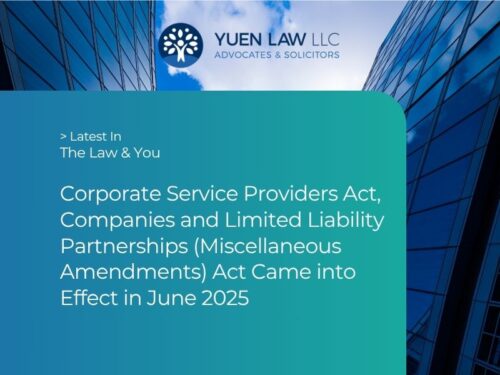Common Mistakes and Considerations in Fundraising
It is important for a company to raise and maintain sufficient funds to meet day-to-day operational costs, as well as to plan for future growth and development. Funds can be acquired externally, from investors who show an interest in the company and wish to commit to an equity or debt investment, in return for future profits.
As attractive as these investments may seem to the company, business owners need to be mindful of the pros and cons of each fundraising option and take care to ensure that the fundraising conducted are in compliance with the Securities and Futures Act. These decisions will impact the long-term progress and development of the company, and should be carefully considered.
Relinquishing too much Management Control of your startup early on
One important consideration business owners need to make is the degree of control they would like to retain over their businesses. Initially, when the business is in its infancy, the founding members of the company often enjoy absolute or majority control over business decisions. The founders are often able to decide the overall direction of the company, its branding and image, and the products and services it provides etc.
There may come a time however, when business owners need to look for interested investors, in order to raise funds and move the company forward. When granted such investors with the investment opportunities, business owners must decide on how much control over the company they are willing to share with their investors. This is especially important in the first few months or years, when the business is still being established. Decisions made at this stage would greatly impact the overall development and direction. If the founders are desirous of retaining control over the company, some methods of fundraising may be more appropriate than others.
At times, the investment may be extremely attractive, such that business owners are willing to share decision-making power. For example, the value of the investment may be very high or that the investor has the requisite management capability or expertise to aid the company’s growth and development. It could also be the case that the profile of the investor lends credibility to the company, where his/her involvement in the company helps to boost its image.
The commercial considerations are aplenty. There are pros and cons to each fundraising option, and business owners need to consider factors such as control over the company, attractiveness of available investment opportunities, as well as priorities of the business at that point in time.
Aligning New and Existing Investment Agreements in Fundraising Rounds
Series funding involves raising funds in successive rounds or series. After the founding members manage to raise funds from interested individuals or firms (commonly referred to as “angel investors” or “venture capital firms”), they begin formal fundraising through series. It begins with “Series A”, followed by “Series B”, and so on. Investors in each series enjoy shares at a certain valuation as well as a set of benefits.
Between the rounds, the shares are valued differently (often more expensive in later rounds), and the conditions of agreement between investors and the company will also be different. For example, an investor in Series A may enjoy voting rights, while an investor who comes in later in Series C, may not.
A common pitfall business owners need to be aware of and avoid is not being careful in the management of the terms of the agreement between the different series. There cannot be a conflict or contradiction in the terms mentioned in the contracts between investors and the investee company. For instance, a Series B investor cannot receive the right to have first say on company decisions, if this same right has already been given to its Series A investors.
As such, it is of utmost importance for business owners to be familiar with the terms of the contracts at each series, and to keep track of them. Legal assistance can be sought to help business owners understand these contracts thoroughly, and avoid conflict in their terms.
Ensuring Compliance with the Securities and Futures Act (SFA) when fundraising
Business owners should also be aware of the Securities and Futures Act (Cap 289) (the “SFA”).
Amongst others, the SFA regulates the activities in relation to securities (including debentures, shares, and other investment instruments). The statute prohibits companies from inviting any person to subscribe for or purchase securities in the course of an unsolicited meeting with that other person.
Generally, business owners may only approach certain class of investors to seek funds. This class of investors are deemed as non-retail investors are referred to as “institutional Investors” or “Accredited investors” as defined under the SFA. These investors often have a net worth above a specific amount and have been proven to possess a certain degree of business knowledge, sophistication and savviness. As such, non-retail investors are deemed to be better informed and less needy of regulatory protection
The definition of an accredited or institutional investor is currently under review by the MAS, and is subject to change.
Business owners thus must be aware of the conditions of the SFA and take care to act in accordance with its guidelines. Contravention of the SFA can attract heavy penalties. It will be useful for companies to seek legal assistance to help them navigate the regulations, receive guidance on the fundraising process and avoid potential pitfalls.
For assistance regarding fundraising matters, please contact us to make an appointment.






